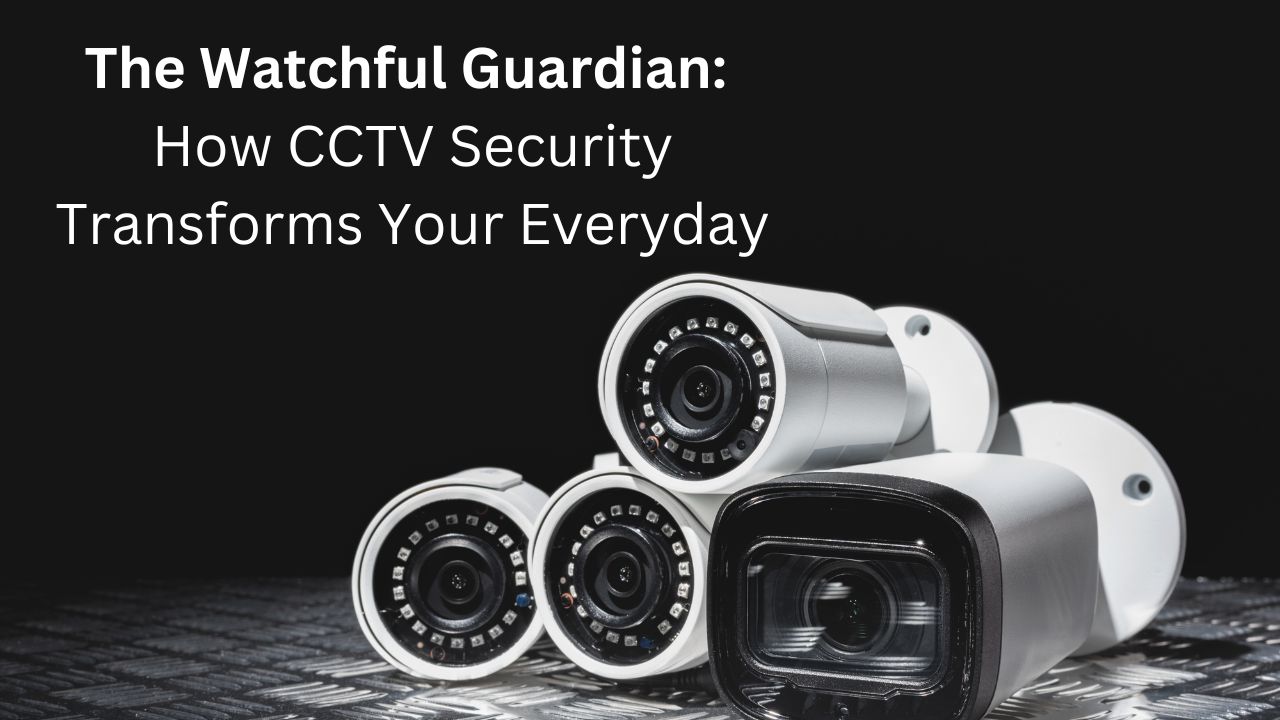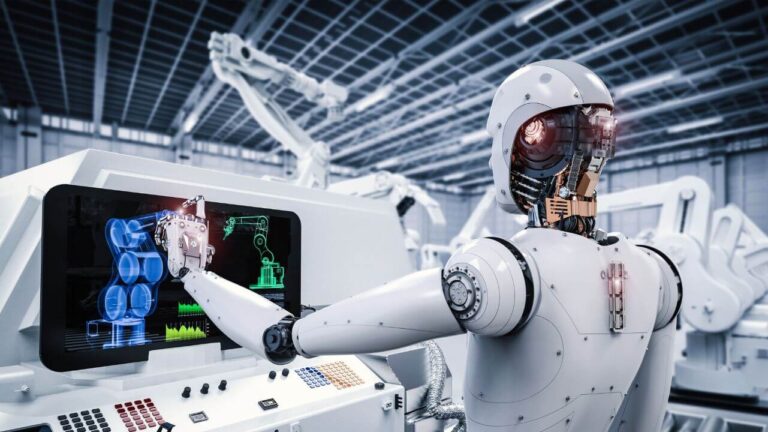Introduction
The Role of CCTV Security Systems in Our Daily Lives – CCTV security systems have become an integral part of our modern society, offering a watchful eye that ensures our safety and protection. These systems serve as vigilant guardians, instilling peace of mind by providing a sense of security in our daily routines.
How Peace of Mind is Nurtured Through Vigilant Surveillance – CCTV security systems offer constant surveillance, contributing to a peaceful environment where individuals can feel safe and protected. – The knowledge that someone is always watching over us fosters a sense of calm and tranquility in our everyday lives. Understanding the Transformation from Fear to Security – Fear, often associated with uncertainty and vulnerability, can be transformed into a feeling of security through the implementation of CCTV security systems. – By consistently monitoring our surroundings, these systems eliminate the unknown, enabling us to navigate our daily lives with confidence and peace of mind.
1. The Evolution of CCTV Security Systems
- From Old-School Surveillance to Smart CCTV Innovations – CCTV security systems have come a long way from the traditional closed-circuit television systems of the past. – Technological advancements have revolutionized these systems, introducing smart CCTV innovations that offer enhanced features and capabilities.
- Exploring the Advancements in Video Monitoring Technologies – Video monitoring technologies have witnessed significant advancements, allowing for clearer and more comprehensive surveillance. – High-definition imaging, wider camera angles, and improved zoom capabilities contribute to a more detailed and effective monitoring system.
2. Crime Prevention and Deterrence
- Deterring Burglaries: Crime Rates and the Presence of CCTV – Studies have consistently shown that the presence of CCTV security systems acts as a powerful deterrent against burglaries and break-ins. – Knowing they are being watched significantly reduces the likelihood of criminal activities, effectively preventing such incidents from occurring.
- Securing Public Spaces: The Impact on Urban Safety – CCTV security systems play a pivotal role in securing public spaces and enhancing urban safety. – With their watchful presence, these systems enable the timely detection and prevention of criminal activities, ensuring the well-being of individuals within the community.
3. Community Empowerment through Surveillance
- Building Stronger Neighborhoods: The Collaborative Effect – The implementation of CCTV security systems fosters a sense of community empowerment by encouraging collaborative efforts in ensuring safety. – Individuals within neighborhoods actively participate in monitoring activities, creating a collectively vigilant environment that strengthens social connections and promotes a shared responsibility for security.
- Enhancing Emergency Response: The Crucial Role of CCTV – CCTV security systems serve as invaluable tools in emergency response situations, aiding in the timely identification and resolution of critical incidents. – By providing real-time visual information to emergency responders, these systems greatly enhance their effectiveness and efficiency in addressing emergencies.
4. Safeguarding Children: Peace of Mind for Parents
- The Benefits of CCTV in Schools and Daycares – CCTV security systems in educational institutions provide parents with peace of mind by ensuring the safety and well-being of their children while on campus. – These systems monitor classrooms, hallways, and playgrounds, creating an environment that promotes a safe and secure learning experience.
- Ensuring Child Safety in Outdoor Playgrounds – CCTV security systems contribute to the protection of children in outdoor playgrounds, reducing the risk of accidents, criminal activities, and potential threats. – By closely monitoring play areas, these systems enable timely intervention, ensuring the security and well-being of children during their recreational activities.
5. Protecting Businesses: Security from Within
- Preventing Theft and Vandalism: The Business Advantage – CCTV security systems act as powerful deterrents against theft and vandalism within business premises. – The mere presence of visible cameras serves as a warning to potential wrongdoers, effectively minimizing the occurrence of such incidents and safeguarding business assets.
- Employee Safety and Productivity: A Positive Impact – CCTV security systems not only protect businesses from external threats but also ensure the safety and productivity of employees. – By monitoring workspaces and common areas, these systems contribute to a secure and productive work environment, fostering employee morale and overall business success.
6. Surveillance Technology and Privacy Concerns
- Balancing Security and Privacy: Ethical Considerations – The adoption of CCTV security systems necessitates a delicate balance between security and privacy concerns. – Ethical considerations must be taken into account to ensure that surveillance technologies are implemented responsibly and ethically, respecting individuals’ rights to privacy.
- Legal Regulations and Safeguarding Individual Rights – Legal regulations play a crucial role in safeguarding individual rights within the context of CCTV security systems. – Governments and regulatory bodies strive to strike a balance between necessary surveillance measures and the protection of citizens’ privacy rights.
7. Smart CCTV Security Systems: Advancements and Features
- AI-powered Analytics: The Rise of Intelligent Monitoring – The integration of AI-powered analytics in CCTV security systems has revolutionized surveillance, enabling intelligent monitoring capabilities. – These systems can detect and analyze patterns, behaviors, and anomalies, allowing for proactive response and increased efficiency in threat detection.
- Facial Recognition: Enhanced Identification and Tracking – Facial recognition technology has significantly improved surveillance outcomes by enhancing identification and tracking capabilities. – CCTV security systems equipped with facial recognition can identify potential threats, track suspects, and aid law enforcement agencies in criminal investigations.
8. A Safer Future: Innovations in CCTV Security
- Advances in Night Vision Technology: Seeing in the Dark – Innovations in night vision technology have empowered CCTV security systems with the ability to see in low-light and nighttime conditions. – This advancement ensures round-the-clock surveillance, providing continuous protection and security, regardless of the lighting conditions.
- Wireless Connectivity: Seamless Coverage for All – The introduction of wireless connectivity has streamlined the installation and coverage capabilities of CCTV security systems. – Wireless systems offer flexibility, allowing for easy expansion and ensuring comprehensive coverage of both indoor and outdoor spaces.
9. Public Surveillance vs. Individual Privacy: Finding the Balance
- Surveillance in Public Places: Benefits and Limitations – CCTV surveillance in public places brings multiple benefits, including the prevention of crime and the promotion of public safety. – Nonetheless, limitations exist, and striking the right balance between surveillance and individual privacy remains a critical challenge.
- Awareness and Transparency: Open Dialogue for Change – Promoting awareness and transparency surrounding public surveillance is essential to fostering an open dialogue for change. – Engaging in meaningful discussions about the impact of surveillance on individual privacy rights leads to the adoption of responsible surveillance practices.
10. Overcoming Challenges: Effective CCTV Implementation
- Ensuring Reliable Surveillance: Maintenance and System Upgrades – To maximize the effectiveness of CCTV security systems, regular maintenance and system upgrades are crucial. – By ensuring the reliability of surveillance equipment, potential vulnerabilities are minimized, and the security of individuals and properties is enhanced.
- Training and Education on Proper CCTV Use and Monitoring – Proper training and education on the use and monitoring of CCTV systems are key to their effective implementation. – Enhancing the knowledge and skills of operators and users leads to improved surveillance outcomes and responsible utilization of surveillance technologies.
Conclusion
Harnessing the Power of CCTV Security: A Transformative Journey – The implementation of CCTV security systems represents a transformative journey towards a safer and more secure society. – The power of surveillance technologies, when utilized responsibly, has the potential to reshape our everyday lives and foster a sense of security.
From Fear to Peace of Mind: Embracing the Watchful Guardian – By embracing the watchful guardian provided by CCTV security systems, individuals can alleviate fear and experience peace of mind in their everyday activities. – The knowledge that vigilant surveillance is in place enables us to live our lives confidently, knowing that we are protected.
FAQs (Frequently Asked Questions)
- Are CCTV systems effective in preventing crimes?
– CCTV systems have proven to be effective deterrents against criminal activities, significantly reducing the likelihood of crimes occurring. - Can CCTV security alone eliminate all safety concerns?
– While CCTV security systems greatly enhance safety and security, they should be part of a comprehensive security plan that includes other measures. - What are the main factors to consider when choosing a CCTV system?
– When selecting a CCTV system, factors such as image quality, storage capacity, installation requirements, and intended usage should be considered. - How does facial recognition technology improve surveillance outcomes?
– Facial recognition technology improves surveillance outcomes by enhancing identification and tracking capabilities, aiding in the proactive detection of potential threats. - What should individuals do if they notice a potential misuse of CCTV?
– If individuals notice a potential misuse of CCTV or any violation of privacy rights, they should report their concerns to the appropriate authorities, encouraging accountability and responsible surveillance practices.











